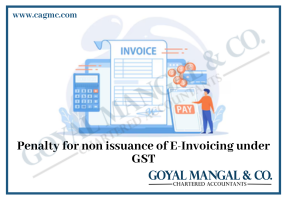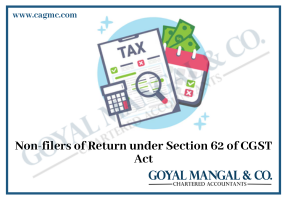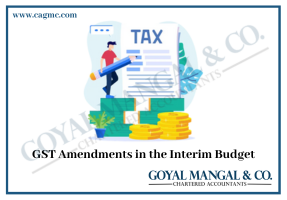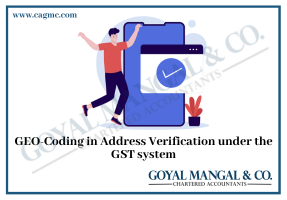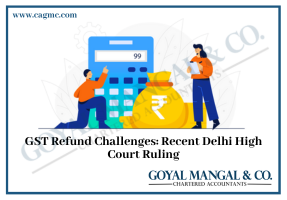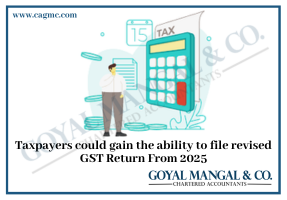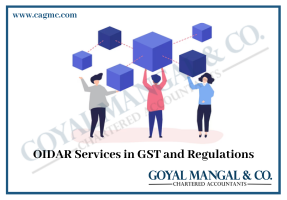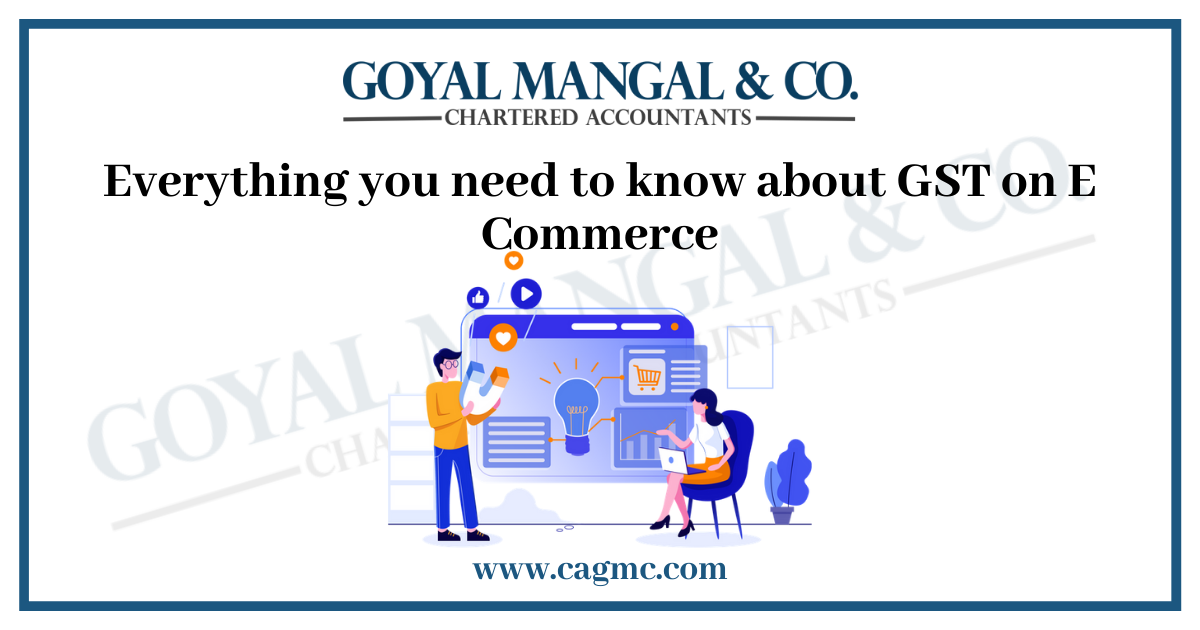
Living in 21st century, everyone became very much comfortable and used to electronic mode of transaction. Considering the rapid change and innovation made in the field of e-commerce mode of transaction the government has brought in new changes through GST to tax those negotiations which simultaneously happen across the portal 24*7 and for every transaction there opens two way gates where both the transactions are subjective to GST.
|
Table of content |
Introduction
Electronic commerce attributes to the type of business which is carried forward by any individual or companies networking through internet. With e-commerce almost everything could be purchased or sold and for doing so we require the company which carries out or outsource the work through online and requirement of an electronic gadgets which has adaptability to utilize internet for availing services of availability such as purchasing tickets, making payments, other financial services or etc.
Ways of operation
E-commerce operates in four market segments
- Business to Business ‘- direct sales of goods and services between the businesses.
- Business to Commerce – sales between business and their customer.
- Consumer to Consumer – consumer of particular goods makes a sale to another consumer. Ex – olx.com
- Consumer to Business – consumer makes a sale to the business owner to sell their end product, Ex- handicraft, hand weaved cloths etc.
Governing law
GST is destined over the consumption of the consumer. It is levied based on a common law by both Central as well State Government(s) simultaneously.
The central government has enacted GST Acts which governs every movement of the goods and are liable for making a payment of GST, they are –
- The intra state transaction/ supply shall be in the control of Central GST,
- Inter-state transaction/ supply are under the control of State GST
- Union Territory shall be governed by UTGST
- Integrated GST will be levied and administered by Centre on every interstate supply of the goods and services.
Who is liable to pay GST tax?
- Section 24 of CGST Act, 2017 – the every person involved in supplying goods and services having e-commerce and internet as platform must get registered only if the turnover of company or business exceeds INR 20 lakh.
- Section 24(ix) of CGST Act, 2017 – the threshold exemption limits mentioned in Section 24 shall not be applicable to “E- commerce Operator”. Thus, making ECO’s GST registration mandatory irrespective to the value of the service provided.
- Section 9(5) of CGST Act, 2017 – the ECO is liable to pay tax on behalf of the suppliers, where the suppliers shall avail the exemption limit of INR 20 lakh. The mentioned section is as similar to the Section 5(5) of IGST Act, 2017 (inter-state supplies or services).
- Section 52(1) of CGST Act, 2017 – an e-commerce company shall be required to collect tax only on the net value of the taxable supplies made. The amount such collected shall be reported in GSTR-8.
Exemption – there shall be no requirement in collection of tax, when the sale is made by the owner of the product.
Tax Collection Source (TCS)
Every E-Commerce operator is required to collect an amount of the rate of 1% (0.5% CGST + 0.5% SGST) from the net value of the taxable supplies. The tax collected by such operator is called as TCS.
Net value – the net value of the taxable supplies means the aggregate value made on the taxable supplies of the goods and services or both.
According to Section 52 of CGST Act, 2017 – if the sale which is made uses two different platform one for vendors and other for selling, in such case the first transaction GST is levied and paid to the vendor but in the second transaction GST is not attracted as the supply of goods are done through the sellers own account.
Section 52(3) – GSTR 8 – the collected tax shall be paid to the government within 10 days after the end of the month.
GSTR 2 – The amount of TCS paid by the operator will get reflected in the GSTR 2.
Note – some goods bare “zero tax goods” or goods which are exempted from tax payment even when the supply is made through ECO. When such exemptions are made, the supply shall not attract tax and in such case there shall arise no question of TCS.
Final words
In short period of time, GST became one of the vast and major topic, while E-commerce emerged as the key essentials for India’s growth by attracting foreign investments and raising the economy of the country. The very description of GST is the payment of tax on Goods that’s sold or purchased and Services which is availed or given.
Through the applicability of GST, the e-commerce industry falls into the purview of the government’s policies. Further, with an applicability of equal or same GST value on the services rendered by the e-commerce provider it encourages the local suppliers to take their business online, which in return paves a way to get a personal growth as well an indirect contribution towards the economic growth of the nation.
